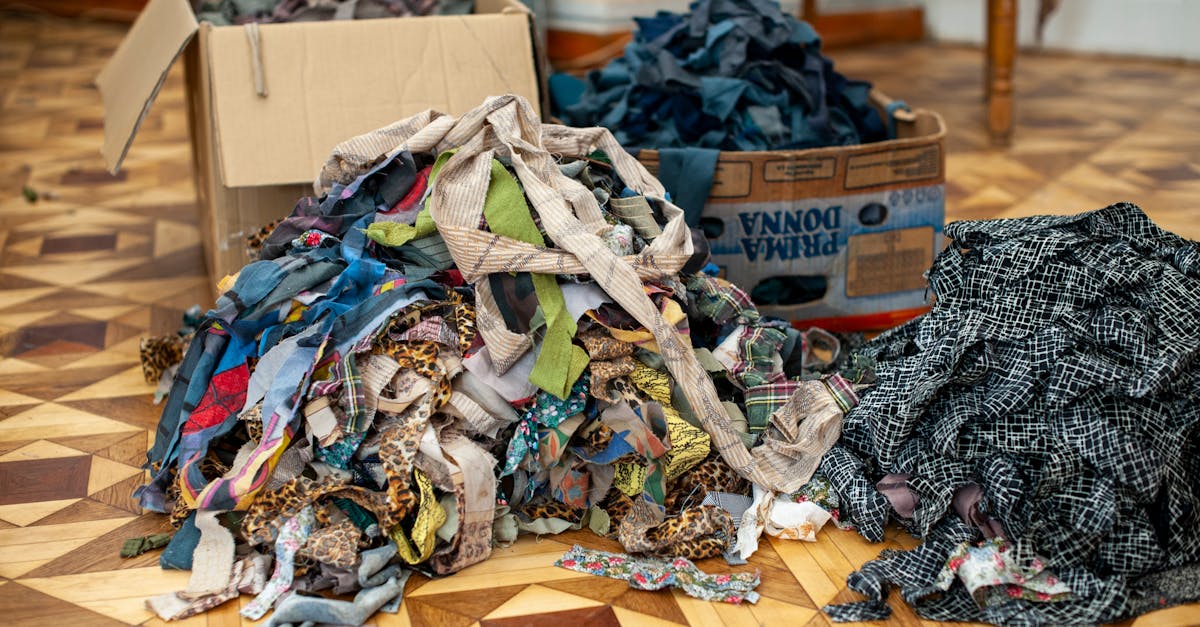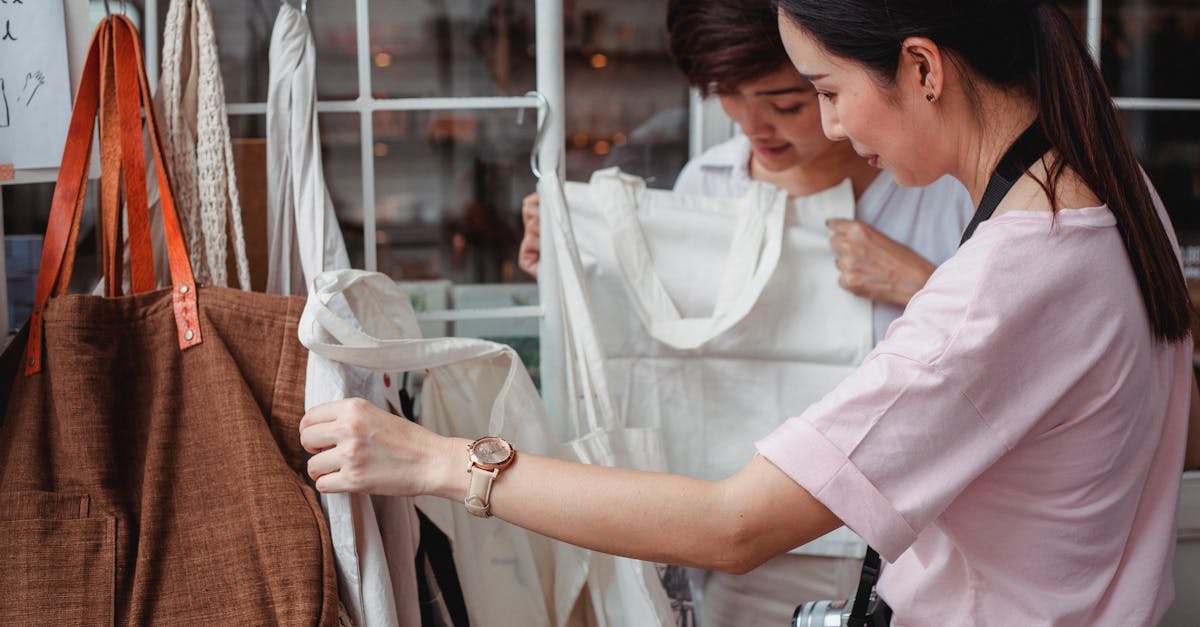Trendy Sustainable Fashion Items of 2024
Introduction
As the global push for environmental awareness grows, the fashion industry finds itself adapting to sustainable practices. Consumption patterns show that more consumers are seeking eco-friendly options, prompting brands to shift towards sustainable alternatives. 2024 has witnessed a surge in trendy sustainable fashion items, which blend style with sustainability. These items not only cater to the style-conscious but also to those mindful of their environmental footprint. From recycled textiles to innovative vegan alternatives, fashion is evolving in incredible ways. With new brands emerging and established ones rebranding, sustainable fashion is more accessible than ever.
Advertisement
Recycled Fabrics Revolution
The concept of utilizing recycled materials is gaining momentum in the fashion industry. Clothing brands are increasingly sourcing post-consumer waste to create fresh pieces. Materials like recycled polyester and cotton not only reduce landfill waste but also minimize resources used. High street brands and luxury labels alike are introducing collections made from recycled resources. This shift is more than just environmentally friendly; it also meets the consumers' demand for transparency and eco-consciousness. Additionally, the effectiveness of marketing campaigns around such fabrics has significantly influenced consumer choices.
Advertisement
Innovative Vegan Materials
Veganism is no longer limited to diet but extends to fashion via innovative materials that don’t harm animals. Vegan leather made from plant-based resources, like mushroom or cactus leather, is replacing traditional animal hides. These alternatives are not only cruelty-free but also environmentally beneficial due to their lower carbon footprints. Many consumers are opting for these chic, animal-friendly options, making brands like Stella McCartney pioneers in the field. As research continues, even more innovative vegan-friendly materials are being explored. The demand for such items is contributing to a wider conversation about sustainable, animal-free fashion.
Advertisement
The Rise of Upcycled Fashion
Upcycling is a transformative trend in sustainable fashion, where old clothes are creatively reimagined into new pieces. This not only diverts waste from landfills but also allows for unique, one-of-a-kind fashion statements. Fashion designers, both fledgling and established, are utilizing old materials in new ways, crafting pieces with artistic flair. Upcycled fashion serves as a canvas for storytelling, often drawing on activism and personal narratives. This trend promotes a do-it-yourself culture, encouraging consumers to transform their own wardrobes. By doing so, it ignites a renewed appreciation for resourcefulness and creativity.
Advertisement
Eco-Friendly Footwear
Shoes made from sustainable materials are stepping into the spotlight, offering chic, durable alternatives to traditional options. Brands such as Veja and Allbirds spearhead this revolution, crafting shoes from eco-friendly materials like organic cotton and eucalyptus. Some lines even incorporate recycled plastics or ocean waste into their designs. These innovations ensure that every step leaves a minimal environmental impact. Consumers increasingly gravitate towards brands that demonstrate genuine sustainability efforts in their manufacturing processes. Both stylish and sustainable, eco-friendly footwear represents a significant segment within green fashion.
Advertisement
Biodegradable Clothing
Biodegradable clothing offers a solution for reducing the fashion industry's long-term environmental impact. Materials like organic linen and biodegradable synthetics break down naturally after disposal. These items are crafted with the idea that fashion can be earth-friendly without sacrificing elegance and sophistication. As more consumers understand the life cycle of their possessions, they’re drawn to these items for their lower ecological impact. The market ingenuity behind these biodegradable options lies in their ability to seamlessly blend functionality with aesthetics. As this movement progresses, biodegradable clothing is expected to expand even further.
Advertisement
Rent and Resell Services
Tech-driven innovations like clothing rental and resale platforms are redefining the framework of sustainable fashion. Services such as Rent the Runway and thredUP allow users to borrow or resell clothing, promoting circular fashion. This option appeals to those who love changing styles without excessive consumption. These services extend the lifespan of garments, reducing demand for new apparel and consequently, resource use. They also democratize high fashion, making it accessible to a broader audience at more affordable prices. Adaptation in this market demonstrates modern consumer preferences shifting towards shared and mindful ownership.
Advertisement
Local and Ethical Manufacturing
Consumers are growing aware of where and how their clothes are made, urging brands to retain local production and ethical labor standards. Supporting local craftspeople reduces carbon emissions from transport and ensures fair working conditions. Ethical manufacturing usually entails better quality control, benefiting consumers as much as workers. Many smaller brands set themselves apart in the market by committing to these principles, strengthening community economies. Brands are combating fast fashion by reintroducing the value in slow, artisanal processes. This movement stands as a testament to the growing preference for meaningful consumer connections.
Advertisement
The Role of Technology
Technology has infused significant advancements into sustainable fashion, making production processes more efficient and less wasteful. Innovations like 3D printing allow for precise, custom-tailored clothing with minimal material waste. Digital fittings and virtual try-ons reduce the need for numerous physical samples, lessening textile waste. Blockchain technology ensures transparency within supply chains, reflecting the highest ethical standards. Collaborative platforms enable designers to innovate together, stretching the limits of traditional manufacturing methods. As technology progresses, it stands as a powerful ally in making sustainable fashion the industry norm.
Advertisement
Conclusion
The dynamic landscape of sustainable fashion is evolving rapidly, with myriad options for the conscious consumer. From recycled and vegan materials to innovative practices like upcycling and rental services, the industry is pivoting toward eco-consciousness. This transformation reflects a growing awareness and demand for meaningful change in how fashion impacts the environment. As brands invest in sustainable practices and technology keeps advancing, these fashionable yet planet-friendly options are only set to grow. Ultimately, sustainable fashion is more than just a trend—it's a global movement pushing for our planet's continued health and creativity.
Advertisement


